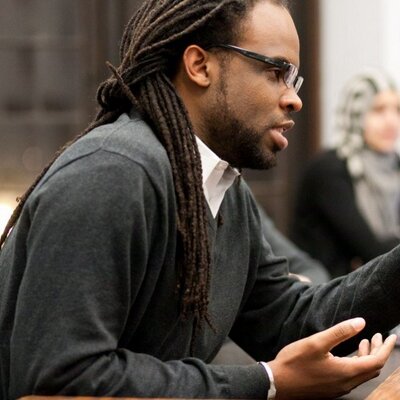Fixing Felony Disenfranchisement in Florida
By Toussaint Losier, PhD, Contributing Writer
On the morning of January 8, 2019, Desmond Meade sat down inside of the Orange County Supervisor of Elections Office in Orlando and fought back tears as he filled out a voter registration form. Flanked by his wife and three of his five children, Meade smiled as he regained the rights he had lost following drug-related convictions in the early 2000s. Describing himself as no longer a second-class citizen, Meade joined dozens of other formerly-incarcerated people as the face of one of the largest expansions of enfranchisement since Women’s Suffrage. Nearly 1.5 million people with felony records became eligible to vote in Florida.
Nearly every U.S. state denies those imprisoned the right to vote. Some prohibit voting until a person also finishes their term of parole or probation. However, Florida, the nation’s third largest state, had been one of just a handful of states that banned anyone convicted of a felony crime from exercising their right to vote—even after the completion of their sentence and their return to society. Indeed, without a special waiver from the governor, formerly incarcerated people could not register to vote for the rest of their lives.
By most estimates, this legalized form of voter disenfranchisement impacted a little over nine percent of the state’s voting age population. With stark racial disparities in arrest and incarceration, this practice of felony disenfranchisement left more 418,000 Black people—or 18 percent of potential Black voters in Florida—unable to vote in spite of the fact that they had completed their sentences and paid their proverbial debt to society.
Far from a new phenomenon, Florida’s 150-year-old felony disenfranchisement law is the product of a post-Civil War period when plantation elites in states across the South designed seemingly colorblind laws to undermine the civil rights and political power of freedmen and women. While it did not prevent Reconstruction governments from taking office, these laws would remain on the books, playing a key role in denying voting rights to African Americans amidst the heyday of the Jim Crow era.
More recently, this law was at the center of the political turmoil surrounding the presumed victory of Republican presidential candidate George W. Bush in 2000, as Florida officials used the corrupt enforcement of this law as the pretext by which to deem nearly 58,000 registered voters, many of them African Americans, ineligible to cast a ballot. While it garnered few headlines, this racist disenfranchisement scheme helped to secure Bush’s official victory by a few hundred votes.
At the same time, this corrupt use of the law also inspired Desmond Meade to take up what would become a decades-long effort to restore these voting rights, first through the courts and the legislature, and ultimately, through a ballot measure. Under the leadership of Meade and other formerly incarcerated people, a broad coalition of organization collected at least 766,200 signatures to get the Voting Rights Restorations for Felons Initiative on the ballot and then launched a door-to-door campaign to increase public support of it. Organizational endorsements ranged from the American Civil Liberties Union to the Koch brothers-backed Freedom Partners. In the end, the initiative won the support of some 64% percent of midterm voters. Due to the hard work of these and other groups, anyone convicted of a felony crime—except in the case of murder or a sex offense—will have their voting rights automatically restored once they complete the terms of their sentence. This is a signal victory that is in many ways illustrative of the possibilities that abound amidst this current moment of criminal justice reform.
Dr. Toussaint Losier is an assistant professor in the W.E.B. Du Bois Department of Afro-American Studies at University of Massachusetts-Amherst. He sits on the advisory board of the University’s W. E. B. Du Bois Center and is currently a visiting scholar at the Charles Warren Center for Studies in American History at Harvard University. His writing has been published or is pending in Souls, Radical History Review, Journal of American History, Race & Class, and Social Justice. He is the co-author of Rethinking the American Prison Movement(Routledge, 2017) with Dan Berger and is preparing a book manuscript tentatively titled, War for the Cities: Mass Incarceration, Black Liberation and the Remaking of the Carceral State.





